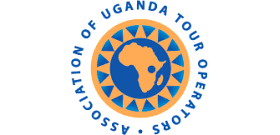 Hotels & Tour Operators struggle to stay afloat
Hotels & Tour Operators struggle to stay afloat
Although the government lifted Covid-19 restrictions on the tourism sector last year, operators of tour companies and hotels say business didn't pick up and others have suspended operations. The Ministry of Tourism economic growth forum budget for 2019/2020 financial year, tourism is the leading foreign exchange earner for Uganda generating $1.5b in revenue.
The management of Pearl of Africa Hotel in Kampala told Daily Monitor yesterday that they were struggling to stay afloat. Mr Nazzim Muwonge, the hotel spokesperson, said they are receiving very few clients due to effects of Covid-19. "Since lockdown, we have no business. Even after the restrictions were lifted, people are not flying into the country and yet most of us [hotel operators] rely majorly on [travellers] who come from foreign countries," Mr Muwonge said.
He added: "For the local market, we get parties for weddings, birthdays and baby showers, [but] these can't sustain a hotel."
Mr Muwonge, however, said they are trying to stay in business but are worried that the rising threat by government scientists about the second lockdown could be more disastrous.
"We are doing more marketing and checking areas where we can improve to get more business. Our restaurants are still open, the poolside and gardens are still open, but we have no business," Mr Muwonge said.
"People are still afraid of Covid-19 or a possible lockdown. The President [Museveni] has just come out to warn the population again. So someone, who would have come here and spent Shs50,000, is now planning to save it to survive in case of another lockdown," he added.
Mr James Kasavubu, the head of marketing at Imperial Royale Hotel in Kampala, said after lifting the restrictions on the tourism sector, the business has only resumed to 10 per cent of what they used to get before the Covid-19 pandemic.
"Up to 80 per cent of our staff are still laid off because there is no business [income to pay their salaries]. At the reception, we used to have six people, but we have only one employee," Mr Kasavubu said.
He said they have put in place Covid-19 prevention standard operating procedures (SOPs) to make sure the few clients feel as safe as possible.
The country's tourism earnings in 2020 dropped by 73 per cent to $0.5 billion due to the pandemic, according to the ministry.
Mr Deogratius Muhumuza, the founder of Uganda Eco Tours, said they stopped operations.
"Since the Covid-19 lockdown last year, I have not had any business and so, we decided to stop operations. I have also sold some of the company assets to be able to survive. I am back to a briefcase business," he said.
But Mr Paul Kasami, the tour sales manager at Great Lakes Safaris, said although business is still low, they are getting few tourists. "Business has slightly picked up. We are currently having around six safaris in a month as opposed to around 20 safaris before the pandemic," he said.
Mr Kasami said each safari has about three tourists.
The tourists spend money on accommodation, meals, a guide to tourism destination and other charges to access the parks, according to available information from tour companies.
"We always make sure that tourists and our staff wear masks and keep a distance from the wild animals due to risks of spreading Covid-19," Mr Kasami said.
Ms Jean Byamugisha, the chief executive officer of Uganda Hotel Owners Association (UHOA), said since the global outbreak of Covid-19, hotels have not yet picked up.
"Unlike other years, hotels could not host campaign meetings but missed out on the business. Also the election chaos we always saw in the press discouraged a lot of the international guests from coming into the country. Covid-19 is still to blame," Ms Byamugisha said. She said the second wave will cause a further impact on hotel business
"Our greatest hope for normalcy is in having everyone vaccinated. Our chairperson, Ms Susan Muhwezi, in partnership with Uganda Tourism Board (UTB) and other tourism stakeholders negotiated a stimulus package from the government through Uganda Development Bank and the European Union," Ms Byamugisha said.
"This will give the hotels a lot of reprieves, especially with their operational costs until the business is back to normal. As UHOA, we are also undertaking intensive and robust training programmes for our staff to retool and reskill them since most of them have been home for a very long time," she added.
Ms Byamugisha said hotel operators have already implemented all the SOPs.
"This is a condition they had to meet before they could officially reopen. The biggest challenge we have is from the guests. Guests usually flout the SOPs, especially within the establishments. They will wear masks to enter the hotels and take them off soon after. There is a need for reeducation in this area," she added.
Mr Muhumuza asked the government to give more tax holidays so that tour operators bounce back.
Mr Kasami appealed to government to make their communication clear, especially regarding the lockdown.
"There have been rumours that another lockdown might happen. So some of our agents are a little bit scared and they are writing emails to express the fears. Government should streamline their communication and be very clear," he said.
Ms Lilly Ajarova, the chief executive officer of UTB, could not be reached.
Outlook
Many people (both domestic and international) are still scared to travel. Many meetings are still held online or hybrid which greatly affects the business of the hotels. It's just now that we are starting to see an increase in the queries for business from international markets," Jean Byamugisha, chief executive officer of Uganda Hotel Owners Association.
